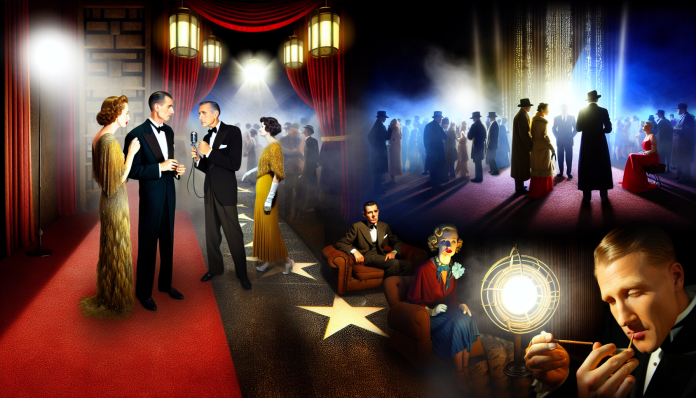Introduction
In the summer of 1995, Hugh Grant, the charming British actor famed for his roles in romantic comedies like “Four Weddings and a Funeral,” found himself embroiled in a scandal that threatened to derail his burgeoning career. Grant was arrested in Los Angeles for soliciting sex from a prostitute, a move that sent shockwaves through Hollywood and reverberated worldwide. At a time when the moral compass was still guided by traditional values, the incident illuminated the hypocrisy and double standards prevalent in celebrity culture.
The Scandal
The incident unfolded on June 27, 1995, when Grant was caught in a compromising situation with a woman named Divine Brown, a known sex worker. Police officers discovered the pair in a car on Sunset Boulevard, triggering a media frenzy. Upon his arrest, Grant’s visage appeared on front pages across the globe, alongside sensational headlines that questioned his moral character.
In a candid confession later that week, Grant famously described himself as “a complete idiot.” He appeared on “The Tonight Show” with Jay Leno to address his missteps, displaying a mix of vulnerability and self-deprecation that endeared him to many. The public reactions were swift and polarized. Some fans rallied around him, emphasizing the absurdity of the situation, while others viewed it as a betrayal of the romantic persona he had carefully constructed.
Quotes from that time illustrate the stark opinions people had:
- Robert Downey Jr. said, “If you’re going to be a famous man, you should have the common sense not to go to Sunset Boulevard!”
- Hugh Grant himself quipped, “I’ve been completely miscast [in Hollywood] as a stud.”
Moral and Cultural Analysis
The scandal unfolded during an era when tabloid journalism was at its peak, pouncing on celebrity missteps with relentless fervor. Society’s reaction was heavily influenced by the prevailing moral attitudes of the 1990s, where celebrity culture was simultaneously revered and scrutinized. Grant’s image as a romantic lead took a severe hit, yet the nature of the scandal led to mixed reactions; some audiences initially turned their back on him, while others felt sympathy for the actor’s vulnerability.
Consequences for Grant were substantial. He faced not only a public relations nightmare but also legal repercussions, receiving a sentence of community service and a fine. However, unlike many scandals of the time that resulted in a complete career collapse, Grant managed to rebound, becoming a more complex and relatable figure in the industry. He later pivoted to more diverse roles, including dramas like “Florence Foster Jenkins.”
How Would It Be Viewed Today?
Fast forward to today’s cultural landscape, where the conversation around consent, power dynamics, and sexual misbehavior has transformed significantly. While the scandal would still likely draw media attention, the focus might shift towards systemic issues within the structures of power and misogyny that permit such cultures to flourish. Grant’s act of solicitation may not be as harshly judged by the public, given a growing empathy towards individuals involved in sex work and a stronger inquiry into the motivations behind such actions.
In today’s society, celebrity scandals have led to movements such as #MeToo, which highlight the importance of accountability and promote conversations around sexual ethics. If Hugh Grant were to face a similar scandal in the present day, it’s conceivable that the public discourse would more critically examine the societal constructs at play rather than simply vilifying the individual.
In conclusion, the scandal that almost destroyed Hugh Grant’s career was a flashpoint, epitomizing the complexities of celebrity culture, the transformative power of media, and the delicate balance between personal missteps and public perception. Grant managed to not only survive the storm but to come out the other side, illustrating both the resilience of human nature and the ever-evolving context of societal norms.

